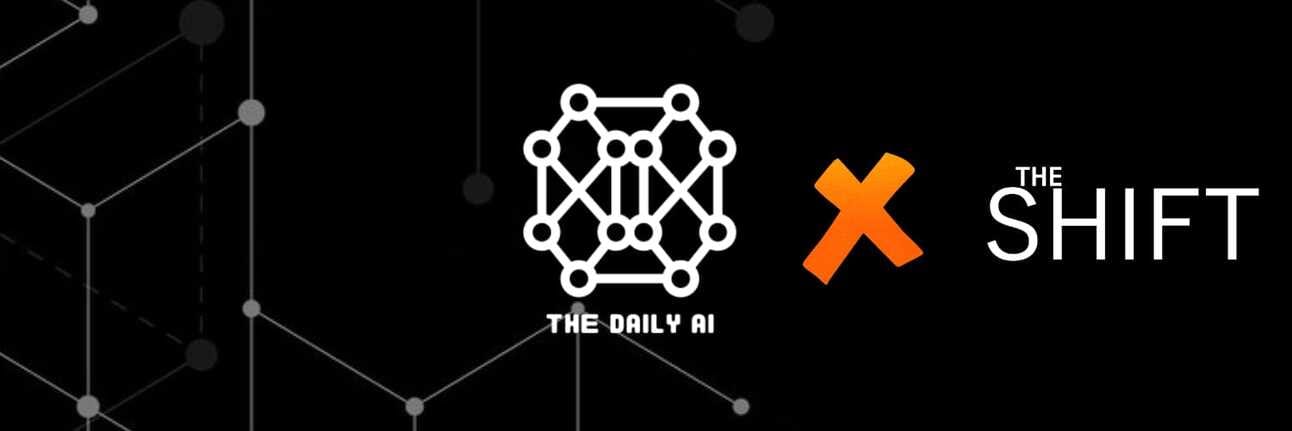- The Daily AI
- Posts
- Navigating the Blockchain Labyrinth: A Deep Dive into Data Privacy
Navigating the Blockchain Labyrinth: A Deep Dive into Data Privacy
Deciphering Challenges and Forging Solutions for a Secure Digital Future
Hello Tech Explorers,
Happy June 27th, 2023!
Today we delve into the complex world of blockchain and its implication on data privacy.
In this issue:
- 🔗 Blockchain and Data Privacy: A Perfect Match?
- ⛔ Navigating the Obstacles: What's Holding Blockchain Back?
- 💡 Forging the Path Forward: Practical Solutions and Real-world Applications
Can blockchain technology be the knight in shining armor in our battle for data privacy? Let's get to it!
In the era of digital interconnectedness, protecting personal data has never been more critical. Blockchain technology, once the underpinning for cryptocurrencies like Bitcoin, now presents itself as a potential safeguard for data privacy. Despite its promising outlook, the implementation of blockchain faces certain challenges that must be addressed to unlock its full potential. Let's delve into this cutting-edge subject.
Blockchain & Data Privacy: A Match Made in Cyber Heaven:
Blockchain technology operates on the principle of decentralization, where data is not held in a single location but spread across a network of nodes, making it harder for hackers to compromise. Every transaction is recorded on a digital ledger and secured using cryptography, ensuring data integrity and transparency. This attribute is highly beneficial to privacy as it allows individuals to maintain control over their personal information.
Obstacles Along the Blockchain Path:
While the blockchain presents numerous benefits, the journey toward its widespread adoption is not without challenges:
- Scalability issues: Blockchain's current infrastructure struggles to handle large-scale operations efficiently. Networks like Bitcoin and Ethereum are burdened with high traffic, leading to slower transactions and higher costs.
- Regulatory hurdles: The anonymity and decentralization of blockchain have prompted legal concerns. Without a clear regulatory framework, it's challenging to ensure compliance with data privacy laws like GDPR.
- Interoperability problems: Blockchains typically operate in isolation, making data exchange between different blockchain networks a complex task.
Solutions on the Horizon:
Amidst these hurdles, the tech world is not standing still. Solutions are being developed to conquer these obstacles:
- Layer 2 solutions and sharding: To tackle scalability, technologies like Layer 2 solutions (e.g., Lightning Network) and sharding are being developed. These techniques can significantly increase the blockchain's capacity and transaction speed.
- Privacy-focused regulations: Countries like Switzerland are already adapting their legal frameworks to accommodate blockchain technology, setting a precedent for others to follow.
- Cross-chain technology: Emerging tech solutions aim to solve interoperability issues by facilitating communication between different blockchains.
Real-World Applications:
From healthcare to finance, blockchain's promise for data privacy has real-world implications:
- In healthcare, blockchain can provide a secure platform for sharing medical records while maintaining patient privacy, as exemplified by Estonia's e-Health solution.
- In finance, decentralized finance (DeFi) applications are using blockchain to provide secure, private financial services, such as the Aave protocol.
While blockchain technology holds substantial promise for bolstering data privacy, challenges lie in its path. By addressing these issues and adapting our frameworks to accommodate this novel technology, we could usher in a new era of data security and personal privacy. Stay tuned to this space as we continue exploring the exciting and ever-evolving world of blockchain technology.
Written by ChatGPT May 24 Version.
